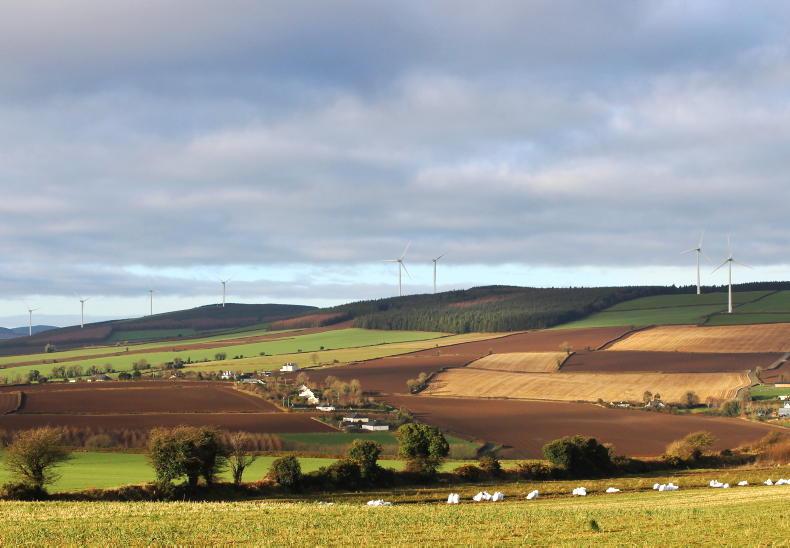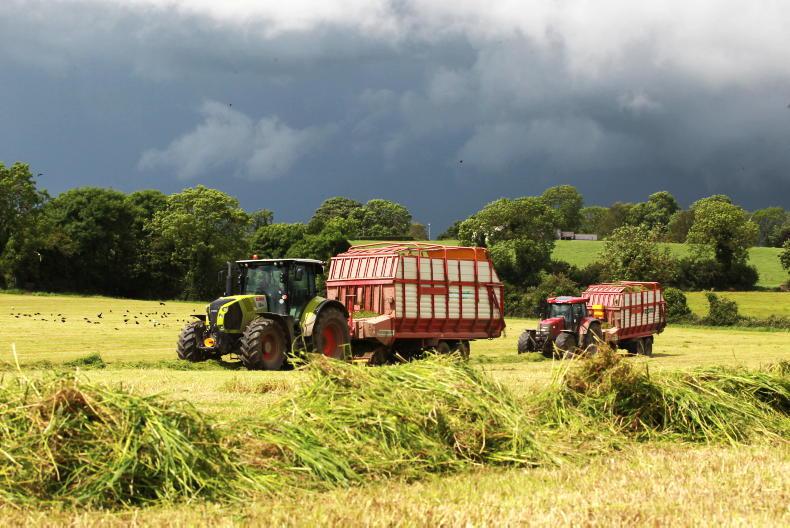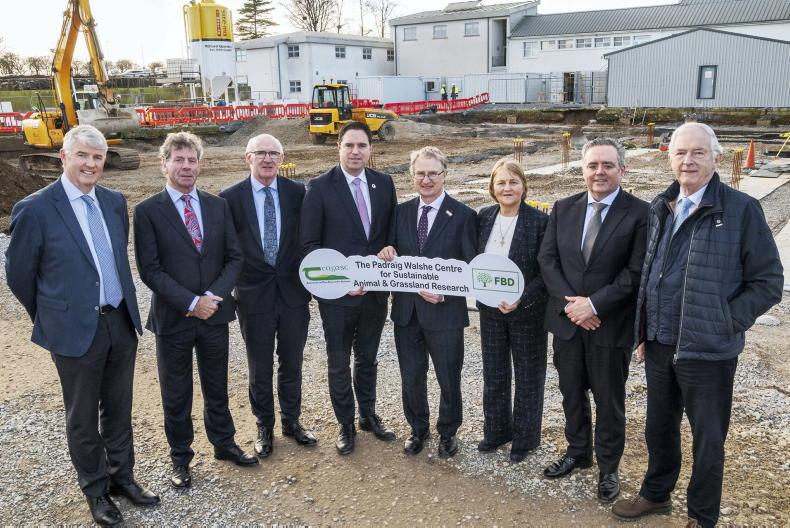It was somewhat ironic that the first woman to speak from the audience at the Women in Agriculture Dialogue on Wednesday suggested women have to stand proud and tall, but, that the best person for the job isn’t always a woman.
She suggested it should be the best “person for the job” and, the dialogue should be “people in farming”, not women in agriculture.
I think most of the 200 women or so in the audience largely agreed with the speaker. However, I think that opening the conversation on specifically targeting women in farming alerts everyone to some of the challenges women face.
All farm families face challenges around work flexibility, minding kids, and the changing face of what were once seen as traditional roles for the man or woman on Irish farms or in the agri industry.
The woman who stood up from the floor announced she was an architect and “nobody stopped me from doing that”, summing up what she believes is the attitude needed by women in farming.
Each speaker reiterated that women need to believe more in the skills they can bring to an executive team, co-op board or a family farm. Few people are in favour of gender quotas when used in isolation – but they are a tool that forces change and have been used in politics in Ireland and abroad. Glanbia CEO Siobhán Talbot pointed out there is no need for meritocracy to be a hostage for diversity, saying “some blunt instruments” are needed to cause step changes, because the change needed will not happen organically.
Serious nitrates talks needed
The fact that dairy farmers are being forced to change stocking rates on farms without the full backing of science showing the potential environmental benefits beggars belief.
To make such drastic changes that fundamentally change the system of farming and potentially reduce family farm income by upwards of 20% shows a significant lack of respect for farmers and the role the sector plays in rural Ireland.
It will be a long time before we see such a significant damaging political decision at EU and Irish level if this planned reduction of the nitrate derogation threshold is allowed to materialise in the coming weeks and months.
At the very least we need serious negotiations with the EU and our own Department of Agriculture and more time to let some of the agreed changes take effect and improve water quality.
Farm workers deserve respect
It is often the case that farmers can be their own worst enemy and this is more often the case when it comes to employing help around the farm.
Expectations of exceptionally high standards and willingness to work all the hours in the day, and the week, are often not aligning with the expectations of potential farm workers.
The fact so many farmers are so used to working on their own does nothing to help the situation.
The dairy challenge is nothing new. New investment and new technology is helping and has been helping for over 40 years.
Farm workers, no matter what country they are from, deserve respect, and the same conditions you would expect to give your own family members.
Positive developments in fertiliser
Sulphur, lime, nitrogen use efficiency – the three lead articles in the Fertilizer Association of Ireland Focus this week.
It’s a sign of the positive change in advice, the change in habit, and the change in how farmers and the industry are using nutrients. It is also the reason why improved nutrient use efficiency and less surplus nitrogen in fields will be part of the future of Irish farming. Farmers are changing and the industry is changing and bringing new tools to the table that will reduce spreading of sometimes unnecessary nutrients that are going to be poorly utilised and damaging to the environment.
It was somewhat ironic that the first woman to speak from the audience at the Women in Agriculture Dialogue on Wednesday suggested women have to stand proud and tall, but, that the best person for the job isn’t always a woman.
She suggested it should be the best “person for the job” and, the dialogue should be “people in farming”, not women in agriculture.
I think most of the 200 women or so in the audience largely agreed with the speaker. However, I think that opening the conversation on specifically targeting women in farming alerts everyone to some of the challenges women face.
All farm families face challenges around work flexibility, minding kids, and the changing face of what were once seen as traditional roles for the man or woman on Irish farms or in the agri industry.
The woman who stood up from the floor announced she was an architect and “nobody stopped me from doing that”, summing up what she believes is the attitude needed by women in farming.
Each speaker reiterated that women need to believe more in the skills they can bring to an executive team, co-op board or a family farm. Few people are in favour of gender quotas when used in isolation – but they are a tool that forces change and have been used in politics in Ireland and abroad. Glanbia CEO Siobhán Talbot pointed out there is no need for meritocracy to be a hostage for diversity, saying “some blunt instruments” are needed to cause step changes, because the change needed will not happen organically.
Serious nitrates talks needed
The fact that dairy farmers are being forced to change stocking rates on farms without the full backing of science showing the potential environmental benefits beggars belief.
To make such drastic changes that fundamentally change the system of farming and potentially reduce family farm income by upwards of 20% shows a significant lack of respect for farmers and the role the sector plays in rural Ireland.
It will be a long time before we see such a significant damaging political decision at EU and Irish level if this planned reduction of the nitrate derogation threshold is allowed to materialise in the coming weeks and months.
At the very least we need serious negotiations with the EU and our own Department of Agriculture and more time to let some of the agreed changes take effect and improve water quality.
Farm workers deserve respect
It is often the case that farmers can be their own worst enemy and this is more often the case when it comes to employing help around the farm.
Expectations of exceptionally high standards and willingness to work all the hours in the day, and the week, are often not aligning with the expectations of potential farm workers.
The fact so many farmers are so used to working on their own does nothing to help the situation.
The dairy challenge is nothing new. New investment and new technology is helping and has been helping for over 40 years.
Farm workers, no matter what country they are from, deserve respect, and the same conditions you would expect to give your own family members.
Positive developments in fertiliser
Sulphur, lime, nitrogen use efficiency – the three lead articles in the Fertilizer Association of Ireland Focus this week.
It’s a sign of the positive change in advice, the change in habit, and the change in how farmers and the industry are using nutrients. It is also the reason why improved nutrient use efficiency and less surplus nitrogen in fields will be part of the future of Irish farming. Farmers are changing and the industry is changing and bringing new tools to the table that will reduce spreading of sometimes unnecessary nutrients that are going to be poorly utilised and damaging to the environment.









SHARING OPTIONS